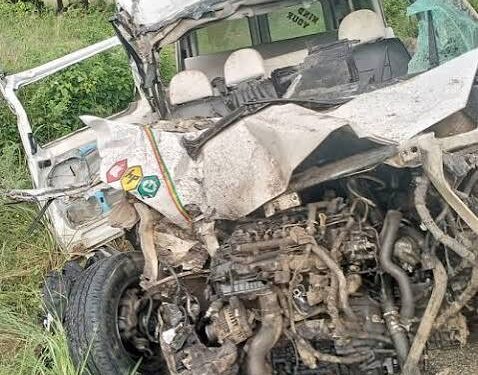According to the report, 1,108 road traffic crashes were recorded in September 2025—a 5.1% drop compared to the same month last year. These crashes involved 1,928 vehicles and led to 243 deaths and 1,405 injuries. While injuries decreased by 3.8% and pedestrian knockdowns dropped by 7.1%, the number of people killed rose sharply by 19.7% from 203 in September 2024 to 243 in 2025.
From January to September 2025, the country recorded a total of 10,734 crashes, representing a 9.3% increase compared to the same period in 2024. These incidents involved 18,276 vehicles and resulted in 2,180 deaths and 12,362 injuries—marking a 20% and 8.4% increase respectively.
Crash severity data for September 2025 shows that:
46% of the crashes were minor
36% were serious
18% were fatal
This trend was similar for the January–September period.
Analysis of the fatalities shows:
89% of those killed in September were adults aged 18 and above 86% were males
The same pattern holds for the year so far, with men representing 80% of deaths
Private vehicles made up the largest share of crashes in September (38.7%), followed by commercial vehicles (34%) and motorcycles (27.3%). However, motorcycle involvement rose by 6.7% compared to last year, a trend that continued across the year with a 20.1% increase.
Regionally, the data paints a mixed picture:
The Upper West Region saw the biggest spike in crash-related deaths in September, rising by 700%
The Ahafo Region saw the largest decline in injuries (down 91.6%)
Over the January–September period, the North East Region recorded a 271% increase in injuries and a 69.2% rise in crashes
The top three regions with the highest number of crashes this year are:
1. Greater Accra – 3,304 crashes
2. Ashanti – 3,215 crashes
3. Eastern – 1,546 crashes
In terms of deaths:
Ashanti leads with 510 deaths
Eastern follows with 449
Greater Accra recorded 304
Despite fewer crashes in September, the number of people dying on Ghana’s roads is increasing. The figures highlight the need for stronger enforcement, public education, and safer road practices, especially for high-risk groups like male adults and motorcyclists.







